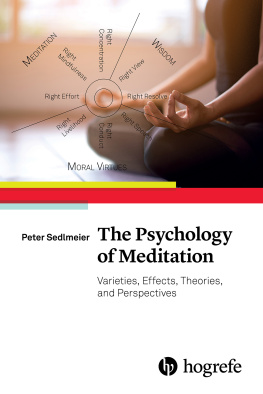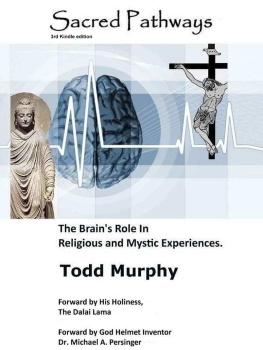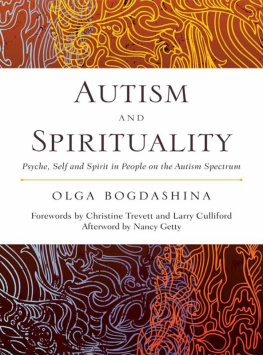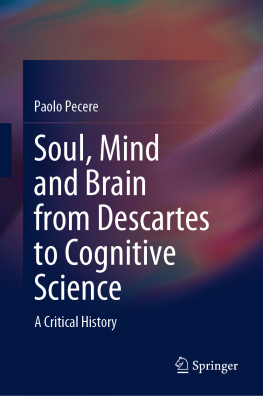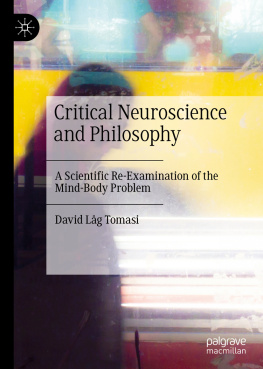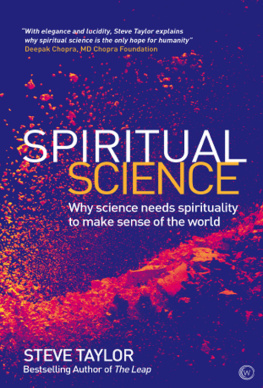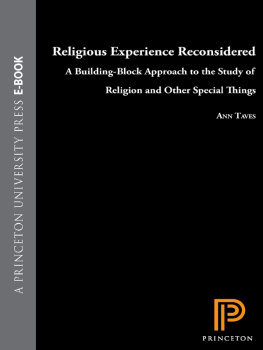The Varieties of Spiritual Experience
The Varieties of Spiritual Experience
21st Century Research and Perspectives
DAVID B. YADEN
ANDREW B. NEWBERG


Oxford University Press is a department of the University of Oxford. It furthers the Universitys objective of excellence in research, scholarship, and education by publishing worldwide. Oxford is a registered trade mark of Oxford University Press in the UK and certain other countries.
Published in the United States of America by Oxford University Press
198 Madison Avenue, New York, NY 10016, United States of America.
David Yaden and Andrew Newberg 2022
All rights reserved. No part of this publication may be reproduced, stored in a retrieval system, or transmitted, in any form or by any means, without the prior permission in writing of Oxford University Press, or as expressly permitted by law, by license, or under terms agreed with the appropriate reproduction rights organization. Inquiries concerning reproduction outside the scope of the above should be sent to the Rights Department, Oxford University Press, at the address above.
You must not circulate this work in any other form and you must impose this same condition on any acquirer.
Library of Congress Cataloging-in-Publication Data
Names: Yaden, David B., editor. | Newberg, Andrew B., editor.
Title: The varieties of spiritual experience : 21st century research and perspectives /
David B. Yaden, Andrew B. Newberg.
Description: New York, NY, United States of America : Oxford University Press, 2022. |
Includes bibliographical references and index.
Identifiers: LCCN 2021057775 (print) | LCCN 2021057776 (ebook) |
ISBN 9780190665678 (hardback) | ISBN 9780190665692 (epub) | ISBN 9780197627525
Subjects: LCSH: Experience (Religion) | Spirituality.
Classification: LCC BL53 .Y334 2022 (print) |
LCC BL53 (ebook) | DDC 204/.2dc23/eng20220301
LC record available at https://lccn.loc.gov/2021057775
LC ebook record available at https://lccn.loc.gov/2021057776
DOI: 10.1093/oso/9780190665678.001.0001
To my wife, Bit, whose love has been a transformative experience.
David B. Yaden
To my wife, Stephanie, who has always been a spiritual inspiration.
Andrew B. Newberg
Dedicated to Roland R. Griffiths for his seminal work on the science of spiritual experience.
Andrew B. Newberg and David B. Yaden
Contents
The idea for this book is almost exactly a decade old and it took a little over five years to write. The scientific progress over this time has been so astounding that it has been difficult to keep up with the evolving research, scholarship, and standards. What we once considered a fairly fringe sub-field is now becoming mainstream. This development is cause for celebration for us and we suspect it would be for William James as well, were he alive to see it. While this progress has been impressive, we believe the need for William Jamess balanced and nuanced approach is more important than ever. As the field has become more visible, it has seemed to attract ever more extreme statements that often go well beyond the available data. We hope that Jamess insights in his original works and as we have tried to describe them in this book will help to temper statements from the super-enthusiasts and the super-cynics alike. In short, we are as grateful for Jamess foundational work as ever.
We want to acknowledge our families patience for all the events on nights and weekends that we have missed while needing to write and for their essential love and support. For DBY, special thanks to parents David and Elizabeth, sister Heather, aunts/uncles, cousins, in-laws, and granny. For ABN, special thanks to parents Fred and Joan and daughter Amanda.
There are several people who have made the writing of this book possible through their understanding of certain deadlines along the way and their institutional support. These include Martin E. P. Seligman at the University of Pennsylvania (for DBY), Roland R. Griffiths at Johns Hopkins University School of Medicine (for DBY) and Daniel A. Monti at the Marcus Institute of Integrative Health at Jefferson University Hospital (for ABN).
Thank you to our literary agent, Jim Levine, for guidance and support, and editors Abby Gross, Nadina Persaud, and Reyman Joseph at Oxford University Press.
We are grateful to those who reviewed the text and provided feedback such as catching errors, suggesting missing citations, and contributing thoughts. These include: Roland R. Griffiths, Johannes Eichstaedt, Marianna Graziosi, Andrea Berghella, Jer Clifton, Eitan Scher, Vera Ludwig, Jonathan Iwry, Justin Barrett, William Richards, Wes Skolits, Michiel Van Elk, Bruce Hood, George Vaillant, and Bit Yaden. We appreciate these contributions but of course any remaining errors in the text are ours.
Many people provided crucial insights during informal conversations. These include: Roland Griffiths, Fred Barrett, Albert Garcia-Romeu, Sandeep Nayak, Mary Cosimano, Matt Johnson, Manoj Doss, David Mathai, Chis Letheby, Brian Earp, Ryan Niemic, Martin Seligman, Tim Beck, James Pawelski, Bit Yaden, Jer Clifton, Kristopher Smith, Daniel Yudkin, Jessie Sun, Dan Haybron, Peggy Kern, Daniel Monti, Johannes Eichstaedt, Alejandro Adler, Derek Anderson, Melissa Kibbe, Emlen Metz, Dan Greene, Steve Marion, Doug ONeil, Matthew Dermond, Matt Jakl, Jon Mecca, Dan Ledder, Chris Brodhecker, Ted Kinni, Kurt Spellmeyer, Heddy, Simon Burger, David Morgan and Sigma, Jonathan Haidt, Marianna Graziosi, Crystal Park, Ralph Hood, Lyle Ungar, Andy Schwartz, Spencer Greenberg, Justin McDaniel, Charles Stang, Dave Vago, George Vaillant, Josh Knobe, Kevin Rudd, Molly Crockett, Brenda Curtis, Paul Bloom, Laurie Paul, Laurie Santos, Miguel Farias, Peter Hendricks, Brian Muraresku, Susan Cain, Dacher Keltner, Scott Barry Kaufman, Tanya Luhrmann, Ann Taves, Michael Barlev, Phillip Corlett, John Medaglia, Roy Hamilton, Dean Zimmerman, David Chalmers, Julien Musolino, Michael Ferguson, Robert Wright, Tenzin Gyatso, Eugene dAquili (in years past). We deeply appreciate these discussions.
Lastly, we thank the scientists and scholars who have advanced, are advancing, and will advance our understanding of the experiences described in this book through careful, creative, and rigorous work.
In the midst of lifes many ordinary moments, some experiences feel extraordinary. They can mark inflection points in ones life, after which one is never quite the same. Most brief experiences capable of making a long-lasting impact involve obvious changes in ones outward circumstances, like a birth, a death, a marriage, or an illness. Yet some life-changing moments seem to come wholly from another source, appearing as mental states or altered states of consciousness from either deep within a persons mind or, perhaps, a source beyond the self. These experiences have been called by different names over time: spiritual, religious, mystical, peak, or self-transcendent, and people around the world and throughout history have experienced them, up to and including the present day. The sacred texts of every major religion describe these moments, philosophers since the ancient Greeks have pondered them, and according to recent Gallup polls (2003), well over 30% of contemporary Americans have experienced them.


